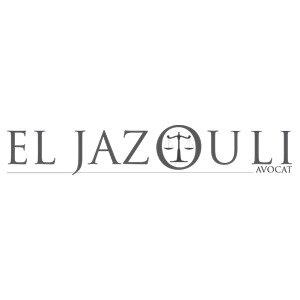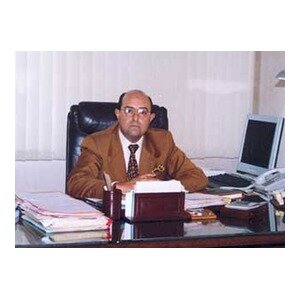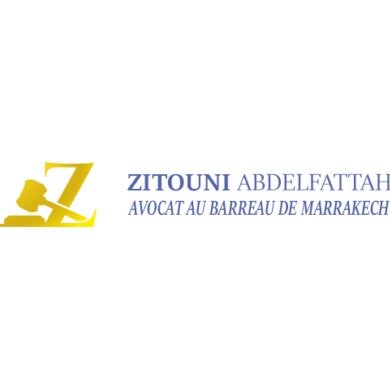Best Energy, Environment & ESG Lawyers in Marrakesh
Share your needs with us, get contacted by law firms.
Free. Takes 2 min.
List of the best lawyers in Marrakesh, Morocco
About Energy, Environment & ESG Law in Marrakesh, Morocco
Energy, Environment & ESG (Environmental, Social, and Governance) law is a dynamic area of legal practice in Marrakesh, Morocco. This sector addresses the legal frameworks that govern natural resource management, renewable energy projects, sustainability initiatives, environmental protection, and corporate responsibility related to environmental and social governance. As Morocco transitions toward sustainable development and green energy solutions, including solar and wind energy, the need for clear regulations and compliance grows. Laws and regulations in this field aim to ensure that economic growth in Marrakesh aligns with environmental sustainability and international ESG standards.
Why You May Need a Lawyer
Individuals and businesses in Marrakesh may encounter various legal challenges relating to energy, environment, and ESG. Typical scenarios include:
- Starting a renewable energy project (such as solar farms or wind turbines)
- Obtaining environmental permits for construction or industrial activities
- Ensuring compliance with environmental regulations and avoiding penalties
- Addressing disputes over land use or environmental impacts
- Understanding ESG obligations for business operations, particularly for investors or publicly traded companies
- Participating in government tenders related to green energy
- Managing waste, emissions, and pollution in compliance with Moroccan law
A specialized lawyer can help clients navigate complex legislation, prepare necessary documentation, represent their interests before regulatory bodies, and ensure projects are lawful and sustainable.
Local Laws Overview
Laws regulating energy, environment, and ESG in Marrakesh are shaped by both Moroccan national legislation and local city bylaws. Key aspects include:
- Renewable Energy Law: Morocco's Law 13-09 established a legal regime for renewable energy, facilitating the development and sale of electricity from green sources like solar and wind.
- Environmental Impact Assessment (EIA): Certain projects require an EIA under Law 12-03, ensuring environmental considerations are integrated from the planning stage.
- Waste Management: Laws such as Law 28-00 govern solid and hazardous waste management, including requirements for disposal and pollution control.
- Water and Air Pollution: Strict regulations limit contamination of water sources and regulate air emissions, especially for industrial activities.
- Urban Planning and Land Use: Local planning rules in Marrakesh must be followed for any development with environmental implications.
- ESG and Reporting: Large enterprises may be required to report on ESG practices, particularly those seeking foreign investment or involved in international trade.
Frequently Asked Questions
What does ESG mean in the context of Marrakesh, Morocco?
ESG stands for Environmental, Social, and Governance. In Marrakesh, it refers to a framework that guides companies and organizations to operate responsibly regarding the environment, promote social good (such as community engagement and labor rights), and maintain transparent and ethical governance structures.
Do renewable energy projects in Marrakesh require special permits?
Yes, renewable energy projects like solar or wind farms must obtain specific permits and comply with both national legislation and local city bylaws, including environmental impact assessments and approvals from relevant authorities.
Are there incentives for investing in green energy in Marrakesh?
The Moroccan government offers incentives and favorable regulations to promote renewable energy investments. These may include tax benefits, simplified licensing, and grants, especially for projects supporting the national strategy for sustainable energy.
What is an Environmental Impact Assessment (EIA) and when is it required?
An EIA is a formal study conducted to assess the environmental effects of a proposed project. In Marrakesh, it is mandatory for activities with significant potential impacts on the environment, such as large construction, infrastructure, or industrial developments.
How are waste and pollution managed by law?
Moroccan law requires all entities to handle waste responsibly and control emissions. There are strict regulations for waste classification, treatment, disposal, and limits on pollutants released into the air and water.
Who enforces energy and environmental laws in Marrakesh?
Multiple bodies enforce these laws, including the Ministry of Energy Transition and Sustainable Development, the National Office for Electricity and Drinking Water, and local authorities in Marrakesh.
Do companies have to publish ESG reports in Morocco?
While not mandatory for all companies, ESG reporting is increasingly expected for publicly listed businesses and those seeking to attract international investment. Some sectors have specific disclosure guidelines.
Can citizens challenge environmentally harmful projects?
Yes, citizens and civil society organizations can challenge projects that violate environmental regulations, especially if due legal processes such as public consultation are not respected.
What legal risks might businesses face if they do not comply with environmental laws?
Non-compliance can lead to fines, project delays, suspension, or closure of operations, and even criminal liability in case of severe violations. Reputational damage may also ensue, particularly in ESG-sensitive markets.
How can a lawyer help with sustainable business operations?
A legal professional can advise on compliance with relevant laws, prepare necessary documentation, assist in licensing, represent clients in disputes, and guide on best ESG practices to minimize legal and financial risks.
Additional Resources
For further guidance and information, consider the following organizations and governmental bodies relevant to energy, environment, and ESG in Marrakesh:
- Ministry of Energy Transition and Sustainable Development
- Moroccan Agency for Sustainable Energy (MASEN)
- National Office for Electricity and Drinking Water (ONEE)
- Regional Council of Marrakesh-Safi
- Moroccan Foundation for Advanced Science, Innovation and Research (MAScIR)
- Moroccan Agency for Energy Efficiency (AMEE)
- Local environmental NGOs and legal aid centers
Next Steps
If you require legal assistance in energy, environment, or ESG matters in Marrakesh, consider the following steps:
- Clearly define your legal issue or project needs
- Gather all relevant documentation and details
- Contact a qualified lawyer or legal firm specializing in energy, environmental, or ESG law
- Arrange an initial consultation to discuss your case or project
- Work with your lawyer to prepare necessary applications, permits, or compliance strategies
- Stay informed about local and national legal updates related to your area of interest
Navigating energy, environmental, and ESG matters can be complex, but with the right legal guidance, you can ensure your interests and operations are protected while contributing to sustainable development in Marrakesh.
Lawzana helps you find the best lawyers and law firms in Marrakesh through a curated and pre-screened list of qualified legal professionals. Our platform offers rankings and detailed profiles of attorneys and law firms, allowing you to compare based on practice areas, including Energy, Environment & ESG, experience, and client feedback.
Each profile includes a description of the firm's areas of practice, client reviews, team members and partners, year of establishment, spoken languages, office locations, contact information, social media presence, and any published articles or resources. Most firms on our platform speak English and are experienced in both local and international legal matters.
Get a quote from top-rated law firms in Marrakesh, Morocco — quickly, securely, and without unnecessary hassle.
Disclaimer:
The information provided on this page is for general informational purposes only and does not constitute legal advice. While we strive to ensure the accuracy and relevance of the content, legal information may change over time, and interpretations of the law can vary. You should always consult with a qualified legal professional for advice specific to your situation.
We disclaim all liability for actions taken or not taken based on the content of this page. If you believe any information is incorrect or outdated, please contact us, and we will review and update it where appropriate.
Browse energy, environment & esg law firms by service in Marrakesh, Morocco
Marrakesh, Morocco Attorneys in related practice areas.















